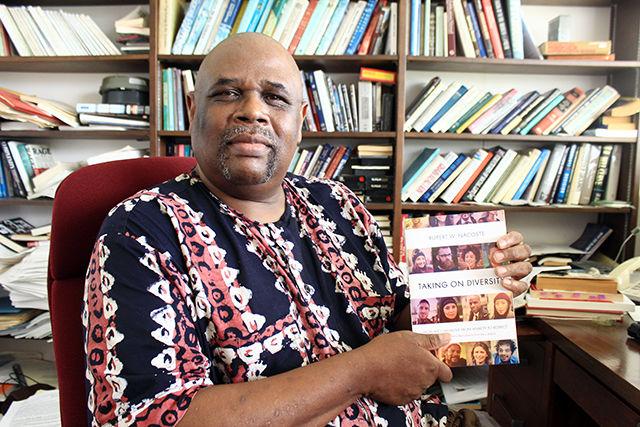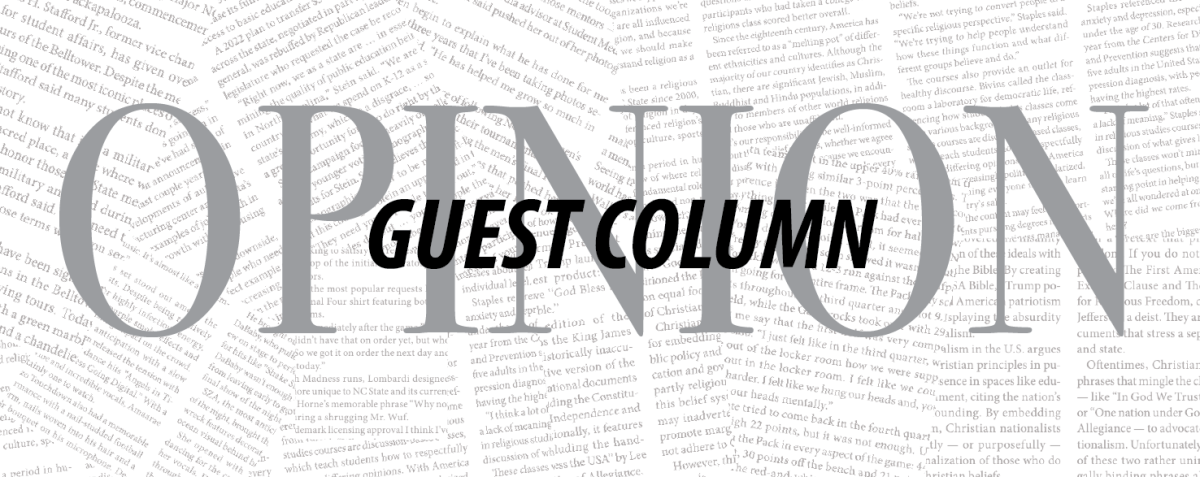Filled with the language of racial hate and racial bigotry, a group-chat has gone public. With NCSU students and school reputation involved, NCSU student government quickly released a statement of protest and point of view. Ironically, that point of view position has also angered some students because it implied that “…black people own the n-word.”
I know this because I got an email from a white female student who has taken my “Interdependence and Race” course. She really wanted to get my attention and did with the email subject, “Please read this, wanted to share current issue on campus.” She wrote to say:
“Dr. Nacoste, [A] statement, written by our student government president states that black people own the use of ‘n word.’ This statement was released in response to a group message conversation that was posted to Twitter. In the group message one male uses the word ‘n—-’ and a female states back to him that he cannot use the word because he is white and only black people may use it. I do not at all support the use of the word, BY ANYONE. I was wondering if you had any thoughts on this as per your class. I am now angered that our student body president has released a statement saying that is okay for black people to use the word.”
I used the Twitter link to the Student Government statement. I was proud to see that the statement took a strong, forceful moral stance against the language of racial bigotry. Even so, my student was right because in the statement there was a sentence that stood out as fitting the theme of ownership that seems to be bouncing around. Embedded in the full statement was this sentence:
“In its nature, the use of terms like this by populations who do not own them is malicious and inherently racist.”
No group can own a group-hate word; especially not the group for whom the word was designed to oppress. But also not the group that created the word to legitimize that oppression. Turns out, history owns the word.
In his 2007 book “The N-Word,” Jabari Asim says this:
“…the word ‘n—–’ serves primarily—even in its contemporary ‘friendlier’ usage—as a linguistic extension of white supremacy, the most potent part of a language of oppression… [that still] helps to perpetuate and reinforce the durable, insidious taint of presumed African-American inferiority.’
“’N—–’… is not one of those words of innocuous meaning that morphed over time into something different and harmful; it has always been tethered to notions of race and racial inferiority.”
For the n-word the history is clear. Only by looking at, and admitting the history, can we analyze to understand the impact of the word. By looking at the history of the n-word we can specify its origins, purposes and effects.
The n-word originated in the context of proclaimed white supremacy; the white man’s burden. Its purpose is to identify by skin-color and then demean, dehumanize, terrorize and use for profit, a whole group of people. Its effects include that dehumanization and the psychological hurt of members of that group.
No one can change the history of past events. Deniers of the Jewish holocaust are on a fool’s errand. So too deniers of the violent, brutal horrors of America’s enslavement of black people. So too those who think if you spell the n-word with “ga” not “ger” that somehow changes the meaning and history of the word.
No one can change the history of the origins, purpose and effects of the n-word. That history lives on. Folly it is for anyone to say, “…it’s not the hard R” or “…we have taken the word back.” Back to what? Back to the future?
Back means history repeating itself. And so, once again, we have at NCSU a group-chat filled with racial slurs and bigotry. To me the timing is no surprise. This group chat has come up in a moment of history, a time of year when America is celebrating the legacy of Dr. Martin Luther King, Jr. whose whole life he dedicated to stopping the dehumanization of black people. The King Holiday becomes a stimulus that disturbs hibernating bigotry; bigotry that sleeps until the right stimulus comes along to wake it up.
Too many young people, some of them college “educated,” think they can somehow through personal-force, magically make a history of castration, lynching, rape and other violent dehumanization go away so they can say the n-word out loud or online with innocence, with affection. A dangerous folly is what that is because when someone tries that all hell breaks loose and here we go again reliving a history that will not die.
Time to grow up. Time to “adult.” Not just at NCSU that some of those involved in the infantile group-chat laughably call a PC university. Go try this on the job and see what happens.
Here are three relevant, real world headlines:
- N-Word Use Among Blacks Put on Trial in NYC Workplace Case; Jurors awarded $250,000.00 compensatory damages to a black employment agency worker who was the target of an N-word laced rant by her black boss; September, 2013
- U.S. Supreme Court Justices slap down federal prosecutor for ‘deeply disappointing’ race remark; Pete Williams, Justice Correspondent, NBC News, February 25, 2013
- Muslim-American man wins nearly $1.2 million in job discrimination case; February 28, 2014
Don’t let the people “back home” fool you into thinking that when you leave this “PC university” you can say whatever you want. There are laws, you see, against hostile work environments; laws against the use, at work, of the language and symbols of racial, sexual, mental-health, bodily-condition, hate that will cost you your job and reputation. You don’t really believe a company will let you cost them money for your arrogant use of intergroup hate language.
Just what America do you think you live in? I live in the one where as a citizen and black man my rights to “…life, liberty and the pursuit of happiness” are protected by the U.S. Constitution; not by what people “back home” tell you. As a military veteran who gave four years of my life to defend the Constitution against all enemies, foreign and DOMESTIC, I leave it to you to figure out the truth of America.
I hope you do so soon.
Dr. Rupert Nacoste is Alumni Distinguished Undergraduate Professor. A Navy Veteran (1972-1976), in 2006 he created and now still teaches his social psychology course “Interdependence and Race.” In 2010 for the NCSU campus he published his book, “Howl of the Wolf: NCSU Students Call Out for Social Change.”











